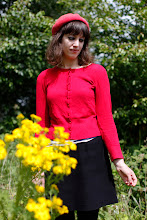With its futuristic bleeping, mysterious whooshing, ominous organ and chugging guitars gearing up to transport the viewer into a different world, the theme tune made for the Dr Who series in 1963 is one of the most distinctive, evocative and appropriate pieces of music ever created for television, and it still forms the basis of the theme tune used today. Long attributed solely to composer Ron Grainer, the contribution made by sound pioneer Delia Derbyshire, a member of the innovative BBC Radiophonic Workshop, has often been overlooked – but now a Manchester-based group, dubbing themselves 'Delia Darlings', are to celebrate her work and legacy with a mini-symposium at Band on the Wall, timed to coincide with the 50th birthday of the series. The Delia Darlings – contemporary classical composer Ailís Ní Ríain, experimental electronic producer and found sound manipulator Caro C, and gramophone glitching artist Naomi Kashiwagi – were inspired to put on the event because “we felt increasing the visibility of her amazing work as a pioneer in the UK was still of relevance today".
Coventry-born Derbyshire was also behind many other sonic experiments and sound effects, which she termed 'psycho-acoustics', and the Delia Derbyshire Day seeks to reappraise her ongoing influence on electronic, experimental and popular music. As Caro C explains, “She is best known for her realisation of Ron Grainer's original Dr Who theme tune but she also came up with so much more interesting and curious creations." Naomi Kashiwagi added: "One of the things that drew me to Delia Derbyshire was the tactile, systematic and meticulous processes she used, cutting and splicing tape together to construct music. Manipulating sounds from everyday objects created something extraordinary and in many cases otherworldly and timeless."
An afternoon event will include a screening of award-winning film the Delian Mode, followed by a Q&A with director Kara Blake, and a panel discussion featuring experts on Derbyshire's intriguing life and work (3pm-6pm). This will be followed by performances of new commissions undertaken by the Delia Darlings, who have created new works based on their adventures in the Delia Derbyshire archive, accompanied by live visuals from Kara Blake (8-10.30pm). Caro C explains, “We felt it was rather exciting that her audio and other material archives happen to be held here in Manchester. So we thought why not make a day of it and with some true Delian experts on board and present."
Derbyshire's archive, which contains original tapes and other materials, is held by the University of Manchester at the John Rylands Library. David Butler, senior lecturer in screen studies at the University, who helped bring the archive to Manchester, said that the Delia Darlings were among the first to delve extensively into the archive, and he was delighted with the project's aims and potential impact: "It's always been our hope that Delia's tape and written archive would provide the inspiration for new works responding to Delia's life and extraordinary music,” he said.
Caro C enjoyed listening to the digitised tape archives and hearing pieces in construction, such as the spacey, reflective 'Blue Veils and Golden Sands'. "The craft and grace in this piece really moved me," she explains. "I was also particularly blown away by a synth pop piece she made in 1971 and the techno track that she made in the late 1960s. She really was ahead of her time and I love it when my concept of time being linear is challenged."
Among the most interesting artefacts were Derbyshire's school books, which Caro C says she found "really touching, maybe because I had not kept my own and they reminded me of all the care and learning we put into our school work (sometimes)". She said: "The Latin exercise books and English essays were really interesting for me – with hindsight you can see signs of her career there already."
Caro C's piece uses some of Derbyshire's school exercise books and sine tones, as well as her sampling or her own voice, for inspiration for lyrics and sounds. She explains that she was inspired by how visionary the music of sound pioneers like Delia Derbyshire was, and the “technical ingenuity, time and dedication required to do what they did”. In today's age of laptop software, which makes it easy to experiment with new sounds, she feels Derbyshire's efforts, as well as the work of other sound pioneers like Daphne Oram, are more worthy of respect than ever.
The film and performances will also appear at FACT in Liverpool (Wednesday 16 January), Queens Social Club, Sheffield (Friday 18 January, supporting Eccentronic Research Council) and Newcastle's Star and Shadow cinema (Sunday 20 January).
Delia Derbyshire Day takes place at Band on the Wall on Saturday January 12.
Full Day: £12. Afternoon event only: £6. Evening event only: £7.50
http://deliaderbyshireday.wordpress.com
The Delian Mode illustration by Brigitte Archambault
Wednesday, 2 January 2013
Delia Derbyshire Day 2013 at Band on the Wall
Labels:
Art,
Band on the Wall,
BBC,
Delia Derbyshire,
Dr Who,
Liverpool,
Manchester,
Music,
Newcastle,
Sheffield,
Sound,
Sound art,
Television,
TV
Subscribe to:
Post Comments (Atom)





No comments:
Post a Comment